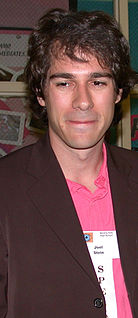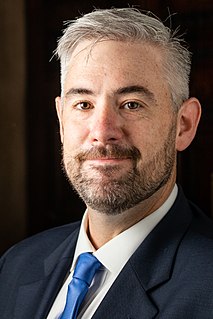A Quote by Ronan Farrow
I spent a long time reporting on trans issues, and I know in the course of that reporting I saw how deeply adversity runs.
Related Quotes
My reporting in Africa wouldn't be political per se, but it's certainly the point of my reporting - and of a lot of other reporters I know: Human suffering is bad, and if reporting stories about it brings it to light and someone does something, that's part of the point of journalism. And it's a thin line between that and activism, and you have to be careful about that.
Trans voices are really underrepresented, and trans stories are really underrepresented, and when they are presented, they're often reductive. I was interested in putting a trans person and a trans narrative on stage that didn't fall into cliché, that thought a bit more deeply about the experience of being trans, and how those issues tie into things that we all experience. How we tell the story of our lives, versus what might have actually happened, and how we communicate to our former selves. All of those questions were really interesting to me.
Journalism today is obviously in a major transition. Going to journalism school, learning how to write, working your way up in a little paper in Decatur, Georgia and then moving to Atlanta and then maybe to New York: it's just over. You have to have a whole other set of skills now. You have to be a videographer, you have to do social media. You can't do a long, thoughtful, insightful piece if you don't have the time to do reporting, particularly reporting around somebody who doesn't want to be known or an issue that doesn't want to reveal itself.
I think the main goal of the feminist movement was the status degradation of the full-time homemaker. They really wanted to get all women out of the homes and into the workforce. And again and again, they taught that the only fulfilling lifestyle was to be in the workforce reporting to a boss instead of being in the home reporting to a husband.
I think it's really important to champion stories from trans women and trans women of color. That demographic has gone unheard and unsupported for so long, and it's really the community that's struck the hardest by a lot of issues. I try to do a lot of work to champion trans feminine issues and stories, but that said, I do have a personal and deep investment in seeing trans masculine stories reflected in culture. It is a little disappointing to me that trans men and trans masculine people have not really been part of this media movement that we're experiencing right now.
What happens when I'm dealing with the problems in North Korea and the Middle East? Are you folks going to be reporting all that very, very confidential information, very important, very - you know, at the highest level? Are you going to be reporting about that, too? So I don't want classified information getting out into the public in a way that was almost a test.

































